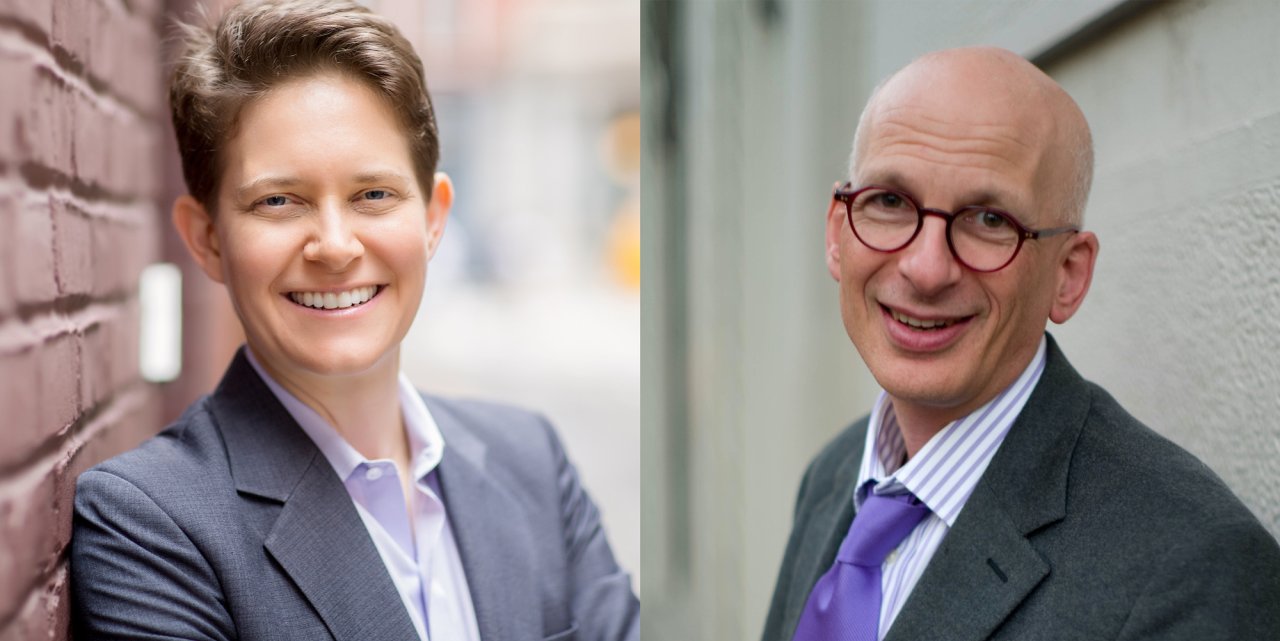We'd all like to inject more creativity into our work—the chance to stretch, learn new things and expand our skill sets. But too often, we hold ourselves back: What if it doesn't work? What if no one listens? Or cares?
But Seth Godin, author of The Practice: Shipping Creative Work, says, "The best way forward is to forget about winning in the short run." Instead, he believes we should concentrate on learning from what our audience tells us. That's how we can innovate and create something useful and meaningful.
In a recent interview as part of my weekly Newsweek show Better (Thursdays 12 p.m. ET/9 a.m. PT), I asked Godin to talk about how professionals can tap into creativity to enhance their work—and the difference they make for others. Here are four strategies he shared.
Don't Wait to "Get Picked"
Many professionals who want to start a new initiative—for instance, launching a blog or a podcast, or creating a new service—hesitate to take the first step. But Godin reminds us that this is a trap we mustn't fall into when starting out. "Every podcast begins with no listeners," he says. "Every blog begins with no readers. You don't wait until you get picked. You don't wait until you get a guarantee. You simply begin." Godin says not to worry if the going is slow at first. "We don't need the biggest possible audience," says Godin. If you're speaking to the right people—who understand and value your message—it doesn't need to be a large number at first.
Build a Streak
Inherent in the art of creation is the power of consistency. Getting in the "habit" of creating—whether it's writing a weekly e-newsletter or giving speeches regularly as part of Toastmasters—helps you hone your craft and shake off performance anxiety. "That's how you become who you seek to become," says Godin. "You're not a runner because the New York Road Runners picked you. You're a runner because you go running every day."
Small practices, compounded over time, can be crucial in leading you to the destination you want—a point I expound on in my new book The Long Game. These long strings of consistent actions are what Godin calls "streaks," and he's vehement about the fact that streaks are something we actively choose and maintain, not a series of coincidences. Godin himself has kept up a streak of writing a blog post every day for more than a decade. His writing streak has become second nature. "Tomorrow morning, there's going to be a blog post from me, and it won't be there because it's the best blog post I ever wrote," he explains. "It will be there because it's tomorrow."

It Might Not Work—and That's OK
Trying something new is inherently risky; we have no idea if we'll fail or succeed. While it might be hard to stomach at first, this mantra is a crucial one to accept in any creative undertaking. As Godin says: "This might not work." He reminds us that the modern world is built on industrialism, an obsession with results and a general belief that "if it's not going to work, it's not worth doing." But that sort of thinking is detrimental to creative pursuits, Godin explains. "By definition, work that is creative might not work. That's what makes it creative work."
So how do you move forward, despite the possibility of falling short? Godin recommends going all in with your eyes wide open. "If you can tell yourself, 'I'm doing this with a practice, with a spirit of generosity, understanding the genre, having looked at what has come before, and it still might not work, but I'm going to do it anyway,' now you're onto something."
Recognize That Creation Is an Act of Generosity
We'd all love our ideas and efforts to be applauded out of the gate. But frequently, they're not. Godin says we need to keep going anyway, because creation is an act of generosity. "Generous doesn't mean free," he says. "And generous doesn't mean trading favors. And generous doesn't mean you have to give it away. Generous is the emotional labor we do to help somebody get to where they ultimately are glad they got."
If you're working hard to help others—whether it's volunteering to share your knowledge at a company lunch-and-learn, or leading a virtual workshop or launching a company newsletter—you may not be recognized by the masses. But if you can stay focused on doing the work and serving your audience—even if it's very small at first—you're doing the world a service by sharing your ideas.
Trying something new and injecting creativity into your work may feel risky—and indeed, it might not succeed. But that doesn't mean you should stop trying. When you put in the work, you can invigorate your own career, stave off the professional ruts that can ensnare many talented professionals and help others in the process.
Dorie Clark, author of Entrepreneurial You and Duke University Fuqua School of Business professor, hosts Newsweek's weekly interview series, Better, on Thursdays at 12 p.m. ET/9 a.m. PT at newsweek.com/linkedinlive. Sign up for updates at dorieclark.com.














